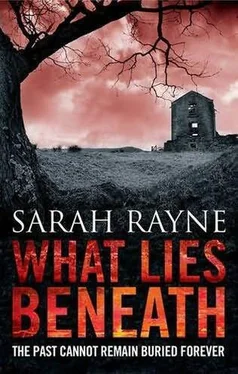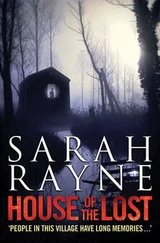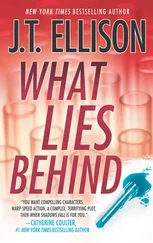So I ran cold water in his little bathroom and bathed my head where the blow had fallen. It ached abominably, but that would have to be ignored for the moment. I went to the bigger of the two windows and looked through the bars. Below was the shrubbery and beyond it were the overgrown gardens of the manor and the drive. I could see the front of the manor – I could even see the crumbling pillars flanking the main entrance. But of Saul there was no sign.
I pulled up a chair and sat by the window, watching, waiting for him to come back. It was half-past four, and on an early spring evening it was starting to grow dark. He would come back when darkness started to descend, of course he would.
But he did not.
The night I spent can probably be partly imagined. Not more than partly, though, because I shouldn’t think there are many people who suddenly find themselves locked away by a madman, facing the prospect of contamination from a substance containing sulphur mustard.
Sulphur mustard. The words sent my mind back across the years, to when I had lain in the infirmary in Edirne and heard the screams of the soldiers. I had never seen them, those poor wretches, but I had seen the nurses shuddering and sickened from tending them.
I ate the remains of the food I had prepared for Saul – I even rinsed the plates in the tiny bathroom. Then I lay on his bed, and tried to sleep. He would be back in the morning, hungry and bewildered and contrite.
But he was not.
The day dragged on. I spent most of it at the window, watching for Saul – watching for anyone. At intervals I returned to attacking the door, trying to work the bolt or the lock loose. All to no avail.
It was midday when I discovered the electricity supply had failed. I suppose it had been disconnected – in fact it was surprising it hadn’t failed sooner. It added to my sense of isolation, but looked at sensibly it did not really make much difference to the situation. I had oil lamps and candles that could be used when it got dark.
Towards evening, I considered what I could do if Saul did not return. Surely someone would walk through the village one last time, to make sure no one was here? Could I attract their attention? How? The only sounds I had been able to make for over thirty years were unformed grunts, so ugly I was careful never to utter them. But I might be able to throw something out of the window.
The bars at the window were thick iron, spaced at two-inch intervals and set well away from the glass panes. I couldn’t reach the glass with my hands, but if I had something sufficiently long I could jab it between the bars and smash out the glass, a shard at a time. I surveyed the room, and chose a large photograph frame, solid silver, enclosing a faded portrait photo of Serena and Julius. It was thin enough to slot between the bars and the silver should be hard enough to shatter the glass. I removed the photograph and laid the frame on the narrow sill, ready. Then I wrote a careful note, saying I was trapped inside the lodge and please to come inside and up the stairs to unbolt the door. I wrapped it around a small book, which would go in between the bars. Then I placed it on the window ledge, ready. The instant I saw or heard anyone outside, I would smash the glass and throw the book and note out. All I had to do was wait.
Seven days. That’s how long I’ve waited now.
My condemned cell has been relatively comfortable. As condemned cells go. The store of food has lasted – I have Serena to thank for that.
At intervals I’ve tried to break out. I’ve hammered against the walls for hours on end, hoping to chip out plaster, and I’ve tried to prise up floorboards, to see if I can get into the rooms beneath. None of it has been any good. Perhaps if there had been implements in this room – hammers or chisels or saws – I might have managed it, but there’s nothing.
At first I thought the supply of drinking water might be a problem, and I wondered if I was fated to die from thirst. Be honest, reader, if you had to choose between dying from thirst and dying from having your lungs and your bones burned by chemicals, which would you pick?
But the taps in the bathroom still ran water, and presently I remembered that when the bathroom was created in this room, the workmen put a large water tank in the roof. I have no idea of its capacity, but I remember seeing it manoeuvred into the loft space with considerable difficulty. It must be about three feet cubed, certainly sufficient to hold several dozen gallons. When the tap is turned on, water comes from that storage tank, which is then automatically topped up from the mains. I had to assume the mains had been turned off, but the stored water remained in the tank. I thought as long as I was sparing with it, it would last the week.
I’ve been sparing. I’ve drawn a bucket each day, and drunk only as much as I felt was necessary. I’ve barely washed. Oh God, it’s been so reminiscent of Edirne and the siege… except that in Edirne we knew there was more than a fighting chance that we would get out and get back to England.
I’ve stood at the window for long hours, watching and hoping someone would appear. But the village is silent and deserted. It really is Goldsmith’s ravaged landscape gloomed with sorrows, the matted woods where bats cling…
Several times I’ve glimpsed Saul through the trees, walking along the village street. Each time I’ve willed him to come back up to the lodge, but he hasn’t. There’s still time, of course…
I suppose he’s sleeping in one of the abandoned houses – that he’s found food there. He’ll be seeing it as a grand, grown-up adventure. I’m seeing it differently. To me he’s the pitiful solitary inhabitant Goldsmith depicted in his fictional village, Auburn. The houseless one, scraping food from the poisoned fields. What does that make me? The sad historian of the pensive plain, I suppose.
Yesterday I had a brief moment of hope when I remembered the grocery delivery and I stood at the window for hours, ready to smash the glass and throw out the note. But no one came, and I have to assume the delivery people knew about the Geranos experiment and since they had been paid up to date, they assumed the delivery would no longer be required.
Now it’s the seventh day. There’s a dreadful biblical ring to that, isn’t there? It’s deathly still everywhere, as if the village is waiting for its fate.
A little while ago – just after eleven o’clock – three children came running into the drive, and my heart leaped with hope. I snatched up the silver frame and began smashing it against the larger of the two windows. They must surely hear and look round.
But they did not. They were running quite fast. There were two girls and a boy – I could see that although I couldn’t see their faces. They ran along the drive, occasionally glancing over their shoulders, and hesitated at the entrance of the manor. I had broken a small piece of window away by that time, and I was managing to knock out several more splinters of glass. But it was far more difficult than I had expected; the iron bars got in the way and I constantly banged my knuckles against them. My nails were torn and bleeding from the glass, but nails and knuckles heal. Bones and flesh burned by sulphur mustard do not. I continued the task.
Very faintly I heard one of the children cry out, and the three of them went into the manor. I stared in an agony of apprehension, willing them to come out again, wanting them to come back down the drive. It was then that another figure came loping along the drive, a slightly shuffling, shambling gait that I knew. Saul. Saul was going after the children. And the children, it was safe to assume, were frightened of him and had bolted into hiding in the manor.
They might as well have stood on open ground and called to him to come and get them. Saul had grown up in that house; he knew every corner, every stair, every alcove and chimney of it. He would find them. I didn’t think he wanted to harm them, but they wouldn’t know that. They would only see the lurching walk, the face misshapen and scarred, and they would be terrified. Too terrified, certainly, to notice the puny attempts of a prisoner in the lodge.
Читать дальше












